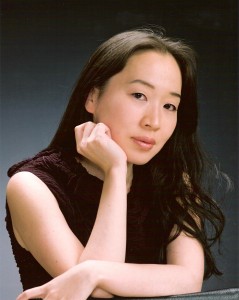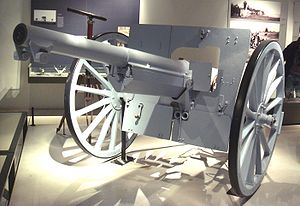 Sarah met pianist Hiroko Sasaki at Blue Ribbon Brooklyn, where the kitchen is open late and the staff is always as sweet as Sauternes. Hiroko will perform the gorgeous Debussy Preludes this Wednesday at Carnegie Hall’s Weill Recital Hall. Tickets are still available. Do your dreams a favor and come.
Sarah met pianist Hiroko Sasaki at Blue Ribbon Brooklyn, where the kitchen is open late and the staff is always as sweet as Sauternes. Hiroko will perform the gorgeous Debussy Preludes this Wednesday at Carnegie Hall’s Weill Recital Hall. Tickets are still available. Do your dreams a favor and come.
Sarah: It’s rare to play both books of the Debussy Preludes in the same concert. What motivated your choice?
Hiroko: I feel very strongly about the music of Debussy. I feel comfortable with his language, and I love his imagination. At first I wasn’t sure that having both books on the same concert would be easy to listen to, but I have played them together a few times now, and people seem to enjoy it very much. Although they were not written too far apart – Book I in 1910 and Book II in 1913 — they are different. I think it’s a nice opportunity for people to hear all of them at once.
Sarah: The preludes have very descriptive titles. How do these titles influence your performance?
Hiroko: Debussy put the most intricate and exquisite markings and titles in his scores. It is worth mentioning that he placed the titles at the end of each piece, in parentheses and preceded by three dots, as if to say, “If you want to hear it this way, go ahead, but only if you want to.” It’s beautiful that they’re presented as afterthoughts, but I have taken them in all the way. When I play the first few notes of the Footprints in the Snow, I am alone in a very, very cold and white landscape where everything is frozen and very lonely. When I play the Hills of Anacapri, it’s a southern island with wind blowing against my face and the Mediterranean blue sky in the background. To me, that’s just in the music.
Sarah: How old were you when you began playing the piano?
Hiroko: I was three. But it wasn’t until I left Japan to study in the UK, when I was 13, that I realized I truly enjoyed making music and that I wanted to do it for the rest of my life. I remember feeling, “Hey, I really love doing this, and I’m good at it!”
Sarah: What do you look for in a piano?
Hiroko: I look for a personal connection. I always have a very strong reaction to pianos. Generally, I like old pianos. They seem to have a more personal tone. I enjoy feeling that I can have conversations with the instrument I’m playing. Sometimes a piano will surprise me and give me a sound that I did not expect. Performance can become so much more alive when that happens. It is difficult to find that in newer pianos.
Sarah: You study with the wonderful Sophia Rosoff, the leading teacher of the Abby Whiteside method. Can you tell me what you’ve learned from her?
Hiroko: This is very difficult to put into words. Although I have been influenced by her for a long time now, it is only fairly recently that I have come to understand the anatomy of what she does. I had a typical conservatory training at Curtis and Peabody— a very good one, too—but sometimes the experience can seem to add up to people continually telling you what to do and how to do it. I went to Sophia feeling desperate, and I kept going back, even though I didn’t quite understand what she was doing to me. People used to ask me what she did and I just didn’t know how else to describe it except “love.” I still believe that’s a large part of what she does and who she is. I’ve learned so much from her technically, but I think her core lesson is that she never separates what’s physical from what’s internal and musical. I couldn’t do what I’m doing now without her help.
Sarah: What does classical music have to teach us in the 21st century?
Hiroko: You tell me! Actually, I think about this quite a bit. Sometimes it feels so silly to me, everyone playing the same old repertoire that has already been played by millions of people. It’s not like the old days, when recordings were not readily available, and people had to go to a concert to hear music, and the performers were closer, culturally, to the composers. Or the really old days, when the performers were the composers. Having said that, these are great works of art that have survived the test of time. We can always go back to them and be nourished. I often notice that my impressions of a certain historical time and place are quite vivid, though they are informed almost entirely by music. Classical music takes people to different places in space and in time.
Born about the same time as the Debussy Preludes and similarly enduring, this cocktail was a favorite of US soldiers stationed in France during WW1. Most educated drinkers agree that the French 75 is on the short list of Best Drinks Ever, although battles still occur over the proper base spirit. In tribute to its potency, it was named after the French 75-mm anti-tank gun. The Savoy Cocktail Book warns, “It hits with remarkable precision.”
1 ounce gin (sometimes made with Cognac)
1/2 ounce simple syrup (equal parts sugar and water, heated to dissolve, then cooled)
1/2 ounce lemon juice
chilled brut champagne
Shake first three ingredients very well with ice, and strain into a chilled flute. Top with champagne. Twist a lemon rind over top to express oil, rub around rim, and discard. This is the perfect thing to drink in a sunken cathedral.


3 weeks later, I am still feeling the effects of Hiroko’s Debussy at Weill; her performance just made me want to go home and play just one note on the piano, beautifully.
I agree with Mr. Resnikoff, Hiroko is one of the true greats — a timeless artist. Hearing her play Debussy is like hearing Debussy for the first time. The music is so alive, it sounds improvised.
Right on, Bob! Hiroko totally delivered at Weill Hall. The concert was magnificent.
Hiroko is one of the greatest pianists I’ve heard live or on recording. Her performances are both exquisite and extremely musical, revealing aspects of the music you didn’t know were there. It’s hard listening to other pianists after hearing her.